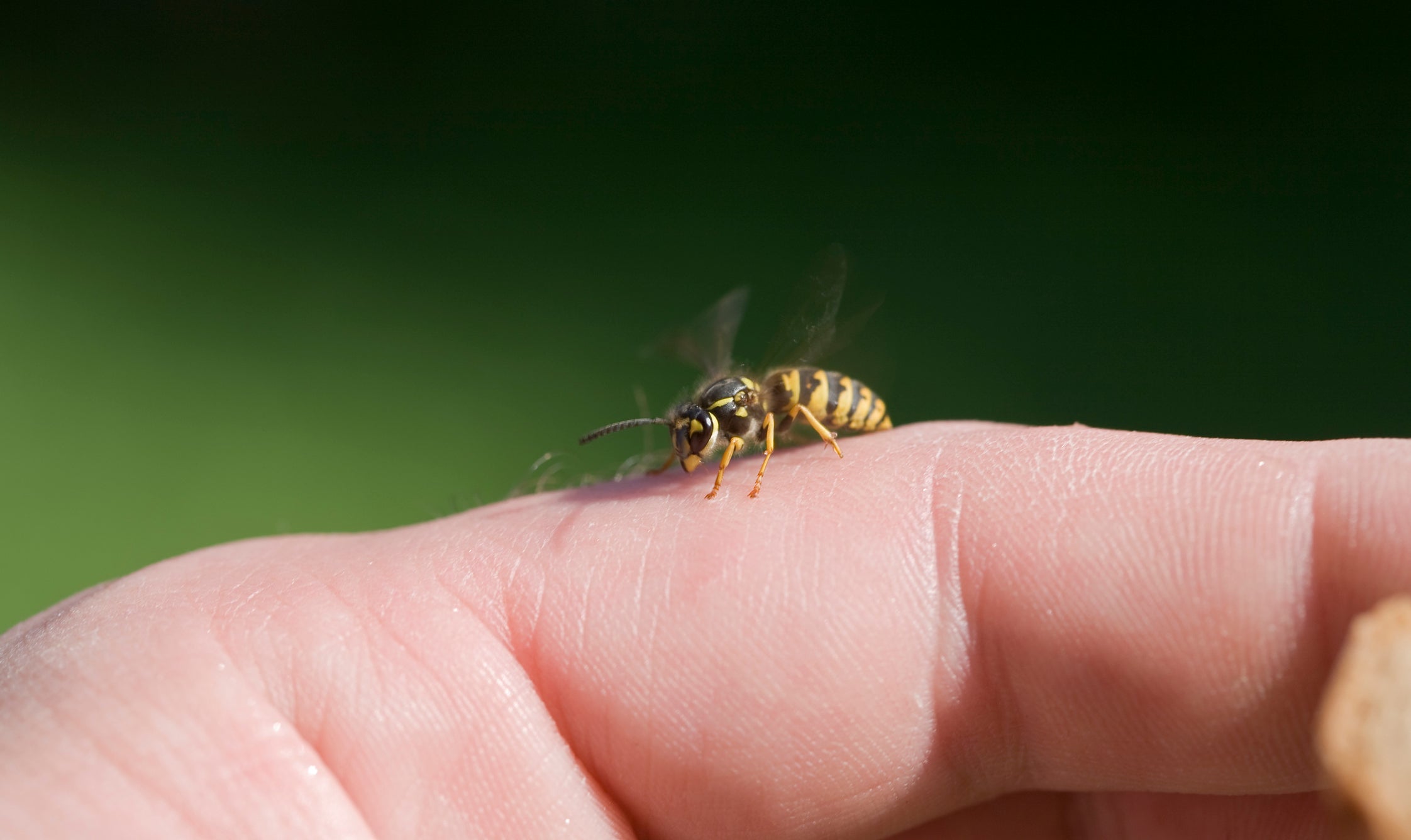Bites and stings warning as heatwave prompts boom in wasps and insects
Anyone with bite or sting allergies should make sure they carry the right medication, advises St John Ambulance

Your support helps us to tell the story
From reproductive rights to climate change to Big Tech, The Independent is on the ground when the story is developing. Whether it's investigating the financials of Elon Musk's pro-Trump PAC or producing our latest documentary, 'The A Word', which shines a light on the American women fighting for reproductive rights, we know how important it is to parse out the facts from the messaging.
At such a critical moment in US history, we need reporters on the ground. Your donation allows us to keep sending journalists to speak to both sides of the story.
The Independent is trusted by Americans across the entire political spectrum. And unlike many other quality news outlets, we choose not to lock Americans out of our reporting and analysis with paywalls. We believe quality journalism should be available to everyone, paid for by those who can afford it.
Your support makes all the difference.People are at increased risk of bites and stings as the sweltering temperatures prompt a boom in insect breeding, St John Ambulance has warned.
Wasps and other insects are set to swarm the country as the heatwave provides the perfect conditions for breeding. The risk of being bitten or stung is also set to increase as insects flourish in the heat.
The charity is urging anyone with known allergies to bites and stings to be prepared by ensuring they have the right medication with them when spending time outside.
Bites and stings reactions are usually mild and can be treated effectively at home, but for some they can be severe, causing intense swelling and irritation.
Dr Lynn Thomas, St John Ambulance’s medical director, said: “During the warm weather, many of us will be out making the most of our time with our friends and families outside.
“Just like our warm weather advice, prevention is better than cure, so you can reduce your risk of being stung by taking some simple measures, such as wearing light-coloured clothing, avoiding perfumed hygiene products and avoiding flowering plants where possible.
“If you experience a mild reaction, this can usually be managed at home with over-the-counter antihistamine medications and bite creams—pharmacists will be able to give advice if you need it.
“They can recommend the best medication and topical treatments for you, especially if you are taking any other medications.”
Dr Thomas also warns against trying to remove the sting yourself as it can “push venom further into the skin”. Instead she advices using a credit card or something similar to brush or scrape the sting sideways to remove it.
St John Ambulance advises people to look out for a red, itchy rash, or raised area of skin to spot if some is having an allergic reaction. Red, itchy, watery eyes, swelling of the hands, feet or face, as well as abdominal pai, vomiting or diarrhoea are also signs of an allergic reaction.
Other symptoms may include difficulty in breathing, swelling of the tongue and throat with puffiness around the eyes, confusion and agitation, as well as signs of shock leading to collapse and unresponsiveness.


Join our commenting forum
Join thought-provoking conversations, follow other Independent readers and see their replies
Comments